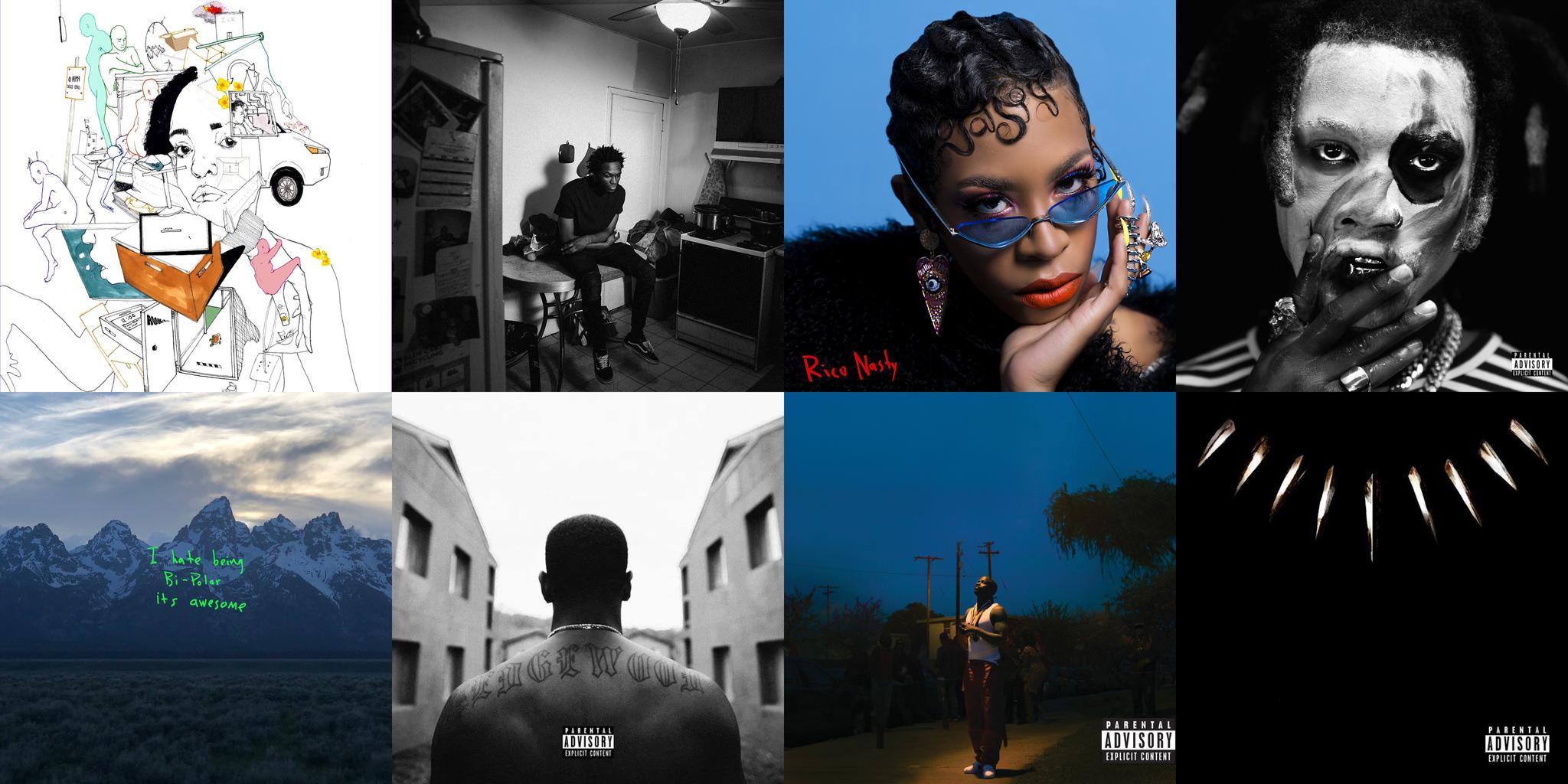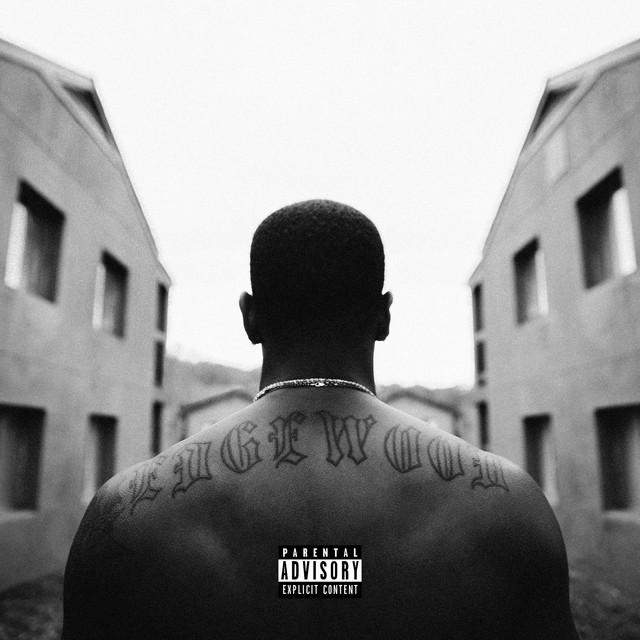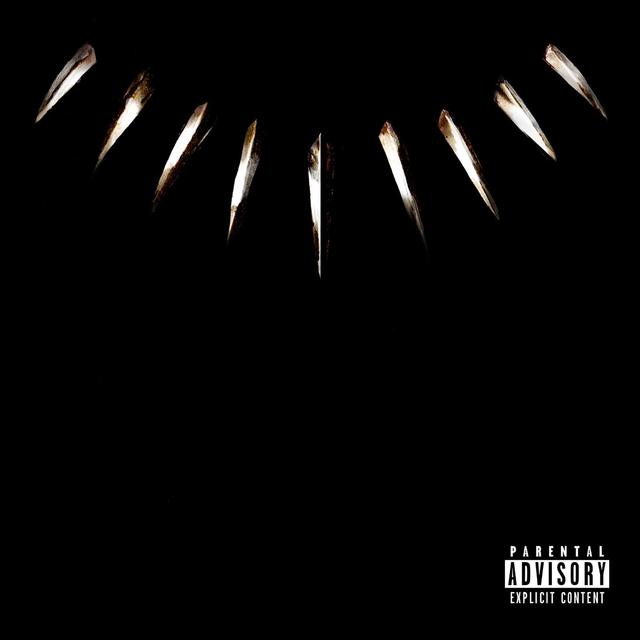
PopMatters' 10 Best Hip-Hop Albums of 2018
Migos – Culture II (Capitol/Motown/Quality Control)In 2018, Migos didn't risk overexposure, they indulged in it.
Source

Noname releases her highly anticipated debut album, Room 25. The 11-track album was executive produced by fellow Chicago native Phoelix and sees Noname return as a more mature and experienced artist. Room 25 has received early praise from The New York Times, calling her a "Full-Fledged Maverick" in their Critic's Pick review yesterday. Noname also recently opened up in The FADER's Fall Fashion issue about her life since the release of her 2016 mixtape Telefone. Rather than cash in on the hype around her extremely well-received 2016 debut mixtape Telefone, Noname took two years to play shows backed by a full band and refine her craft before releasing her follow up project. Over the last few months anticipation for her new album steadily built with Nonamedropping a stream of hints that its release was approaching. Telefone established Noname as one of the most promising and unique voices in hip hop, and with Room 25 she stakes out her place as one of the best lyricists in the genre and comes into her own as a fully realized artist as she achieves mastery over the style she developed with her first tape. Room 25 arrives a little over two years after Noname released her breakout mixtape Telefone. Upon its release, Telefone received nearly universal acclaim and propelled Noname to become one of the most exciting new voices in music. The intimate mixtape cut through the noise of an oversaturated musical landscape like few other releases have in the last several years. Since the release of Telefone, Noname has built an international presence, successfully touring the world and playing the top festivals. In 2017, she also touched the Saturday Night Live stage alongside collaborator and childhood friend Chance the Rapper to perform a song of his Colouring Book album. The New York Times called her SNL performance "a master class in poise, delivery, and self-assuredness." Noname (AKA Fatimah Warner) grew up in Bronzeville, a historic neighborhood on the Southside of Chicago that famously attracted accomplished black artists and intellectuals of all types. Fatimah first discovered her love for wordplay while taking a creative writing class as a sophomore in high school. She became enamored with poetry and spoken word - pouring over Def Poetry Jam clips on YouTube and attending open mics around the city. After impressive appearances as Noname Gypsy on early Chance the Rapper and Mick Jenkins mixtapes, she gained a cult-like following online that helped set the stage for the life-changing release of Telefone. Coinciding with the album's release, Noname is also announcing her Fall tour, beginning next year in Detroit on January 2nd, she will play 19 shows across North America before concluding at Oakland's historic Fox Theater on March 15. Tickets for the tour will go on sale 9/21 at 10:00 AM local time and will be available at nonamehiding.com.



Despite his presence at the forefront of South Florida’s lo-fi rap explosion—due in part to his meme-generating “Ultimate” single—Denzel Curry remains one of his state’s more under-heralded talents. Not unlike his standout *Planet Shrooms/32 Zel* project, *TA13OO* indulges the MC’s continuously shifting moods, this time separated into three acts Curry calls “Light,” “Gray,” and “Dark.” “I was in a dark space when I was working on the dark part,” he told Beats 1 host Zane Lowe. “I was trynna work on the light part when I was working toward my happiness.” The result—from the balmy funk of the Light act’s “CASH MANIAC” (featuring a standout chorus from newcomer Nyyjerya) to the lyrical pummeling of “BLACK METAL TERRORIST”—is an album that highlights Curry\'s uncanny ability to match mosh-pit-inciting energy with complex and flowery bars.

Kanye doesn’t shy away from darkness or drama on his eighth solo album, written and recorded while holed up with an extended circle of friends and collaborators amid the snowcapped mountains encircling Jackson Hole, Wyoming. As expected, he mentions recent controversies—including that notorious “slavery was a choice” comment—and possibly sparks some new ones, name-dropping the #MeToo movement and Stormy Daniels. Even those headline-grabbing asides, however, don\'t overshadow what are arguably the most candid lyrics of Kanye\'s career. His mental health is a constant theme: Kanye confesses to suicidal and homicidal thoughts within the album’s opening minute, then admits he’s bipolar on “Yikes”—but proclaims the condition is “my super-power…ain’t no disability.\" He praises wife Kim Kardashian for standing by him through \"the worst times” (“Wouldn’t Leave”) and reveals how his daughters have changed his views about women (“Violent Crimes\"). Like G.O.O.D. Music president Pusha-T’s *DAYTONA*, released a week prior and produced by Kanye in Wyoming, the album has just seven songs, most under four minutes—his most focused and concise project yet, even with yet another impressive, sprawling guest list (Kid Cudi, Ty Dolla $ign, Nicki Minaj, Charlie Wilson). And the production, as always, is often remarkable: Kanye’s political beliefs may have changed, but his ear for skillfully chopped-up samples and uplifting, gospel-informed vocal arrangements hasn’t.




Cardi B’s “Bodak Yellow,” the most chantable song of 2017, introduced the Bronx MC’s lively around-the-way-girl persona to the world. Her debut album, *Invasion of Privacy*, reveals more of Cardi\'s layers, the MC leaning forcefully into her many influences. “I Like It,” featuring Bad Bunny and J Balvin, is a nod to her Afro-Caribbean roots, while “Bickenhead” reimagines Project Pat’s battle-of-the-sexes classic “Chickenhead” as a hustler’s anthem. There are lyrical winks at NYC culture (“Flexing on b\*tches as hard as I can/Eating halal, driving a Lam”), but Cardi also hits on universal moments, like going back and forth with a lover (“Ring”) and reckoning with infidelity (“Thru Your Phone”).

2018 seems light-years away from the time when Migos felt so implored to stake a claim in hip-hop that they’d call their sophomore album *Culture*. And yet, *Culture II* arrives only a year after its predecessor, Migos having fully established themselves as three of the most influential voices in rap. This latest offering is a flex, the group delivering no less than 24 tracks of their signature multisyllabic, baton-passing raps. The party starters are here (“Walk It Talk It,” “Auto Pilot”), but they’ve allotted themselves room to experiment, as on the funky Pharrell collab, “Stir Fry,” and Kanye West coproduction, “BBO (Bad Bitches Only),” built on a triumphant horn riff. Migos\' output just prior to *Culture II* may be what made them into superstars, but if their first offering of 2018 proves anything, it’s that there’s plenty more where that came from.

If *ye*, Kanye West’s solo album released one week prior, was him proudly shouting about his superpower—bipolar disorder—from the peak of a snowcapped mountain, *KIDS SEE GHOSTS* is the fireside therapy session occurring at its base. Both Kid Cudi and West have dealt with controversy and mental illness throughout their intertwined careers. It’s all addressed here, on their long-awaited first joint album, with honesty and innate chemistry. Kanye’s production pulsates and rumbles beneath his signature confessional bars and religious affirmations, but, centered by Cudi’s gift for melodic depth and understated humility, his contributions, and the project overall, feel cathartic rather than bombastic and headline-grabbing. On “Freeee (Ghost Town, Pt. 2),” the sequel to *ye* highlight “Ghost Town,” both men bellow, “Nothing hurts me anymore…I feel free” with such tangible, full-bodied energy, it feels as though this very recording was, in itself, a moment of great healing.